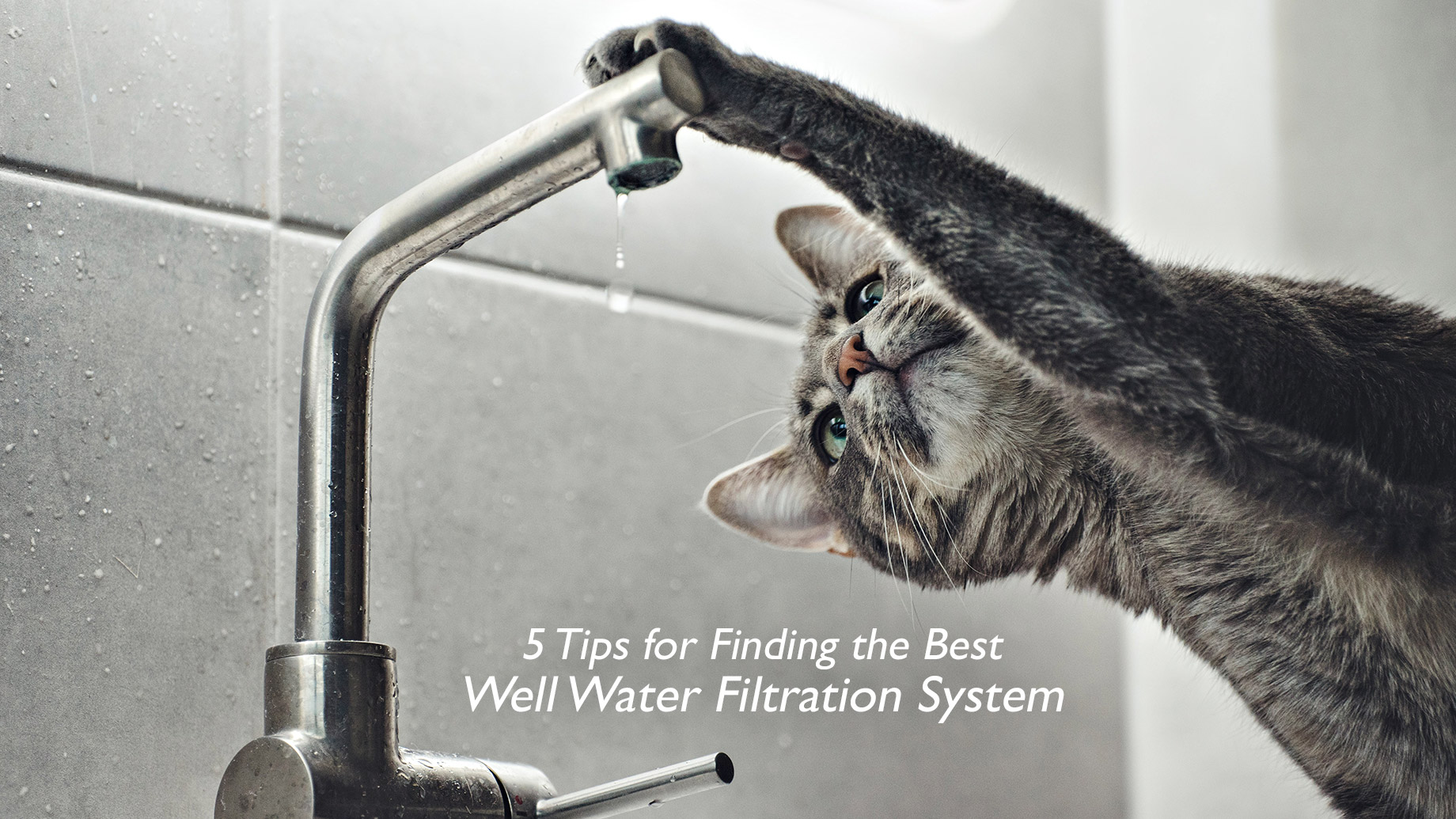
Finding the right water filtration system for well water can be an overwhelming task. The filtration system can help improve the quality of well water, but have you ever asked yourself why most people have to install water filtration systems multiple times in a year? Sometimes people undergo the costs of multiple purchases for failing to do the proper research and testing their well water says QualityWaterLab.
Conducting due diligence can help you acquaint yourself with the system’s basic knowledge, including its components and how it works. This article will put together the top five tips for selecting a well water filtration system. But before we get there, let’s first understand the concept of water treatment systems.
Many people are lucky to have been raised in urban areas that experience safe and quality water. However, after moving to the countryside, this when people realize the hassle of obtaining quality water. In fact, some people acknowledge the dangers of well water the first time they own a private well as well water can be rusty, contain harmful bacteria that may cause sickness, and produce a bad odor.
The good news is that all these issues are just minor challenges that can be quickly solved using a water treatment system. Many water treatment system suppliers are available in the market, making it easy to get the best whole house water filtration for wells. However, some suppliers are after money, and they will advise their customers to pick any system that sometimes doesn’t meet their needs. How much does a water filtration system cost? Waterfilterspot gives you an accurate breakdown of the prices.
So, here is how you should select well water treatment systems.
1. Check the Chemistry of the Well Water
Water systems work differently in terms of their range of performance. For instance, when the well water is both acidic and contains iron, your system may not have the capacity to filter iron from acidic water. However, still, you have to reduce the water’s acidity to make it safe for use.
Understanding the parameters for evaluating the system is crucial. You have to analyze the water regularly, perhaps, annually, especially when you have the well located near industrial sites, agricultural areas exposed to massive chemical use, or gasoline stations. The analysis helps to identify any chemical contaminant to ensure that you maintain good-quality water.
In case there are livestock or septic tanks near the well, it is important to carry out a bacteria test. Aesthetic issues with your water like bad odors could also be eliminated through a mineral test, which includes calcium hardness, turbidity, pH, dissolved solids, and alkalinity tests.
Other important elements to include in the analysis include nitrate sulfate, metals like lead, sodium, arsenic, and chloride. Before you purchase your system, it remains vital to perform a water analysis to foster a solid decision.
2. Get to Understand How a Well Water System Works
Acquainting yourself with how well a water treatment system works is vital in choosing the best water treatment system, as every system affects water pressure and flow rate of water to a household in a different manner. Most well owners use the automatic submersible pump to draw water into their homes.
However, if the well is too shallow, you can utilize a jet pump that is fixed on the ground level to pump water from the well and create decent water pressure for adequate water flow to households. Some systems include water tanks that hold water before being pumped to homes, while other systems use the law of gravity to propel water pressure.
3. Understand the Basic Concepts of Well Pump Flow Rate and Its Effects on Water Treatment Systems
Water wells can be different in size, requiring you to have a particular well pump. The well pump is crucial as it determines the rate at which water flows. You must test the pump to identify its actual flow rate before making any purchase. Moreover, obtaining knowledge about a well pump’s flow rate will help you identify the right size for your water treatment system.
The good news is that almost all systems are self-cleaning and have a particular minimum flow rate. When the well pump’s flow rate is not compatible with the system, the system can fail. Hence, you must ensure there is enough pressure to draw water and that the pup can enable full cleaning. Also, note that a large system can lose pressure, whereas undersized systems allow good water flow into the filter.
4. Compare the Water Pressure of the System
Apart from the water flow rate, water pressure significantly impacts a water filtration system’s performance. In most cases, systems reduce water pressure the moment water starts flowing through different equipment. As such, it is imperative to research the water pressure of the well pump as well as the components of the system before placing an order for your well water filtration system. This helps ensure that you obtain excellent water pressure for your bathroom and other home appliances and fixtures.
5. Pick the Right Water Treatment System that Suits Your Needs
Selecting the best well water filtration system can be daunting, and many people would ignore the essential determinants of a good system, rendering them into the wrong hands of suppliers. While there are numerous contaminants to filter in a water system, it is important to note that not all systems have the same capacity to filter all water contaminants.
Therefore, let your supplier make you understand the capability of each system before you seal the deal. Ideally, this should be a general description of the system’s capacity to extract various impurities, the number of flow rates it can process, and the minimum pressure the system can operate.